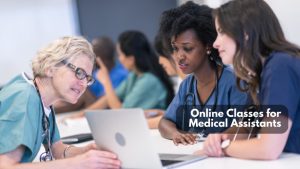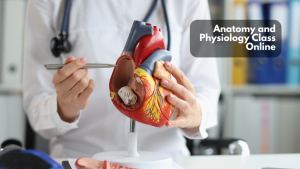Personal care aides and home health assistants workforce grow annually at an average of 6.1%, according to Data U.S. The steady growth is linked to many students taking PCC online classes and affiliated courses like CNA programs in community and top-tier colleges. However, the workforce needs to be increased since the U.S. requires about 684,600 caregivers to attend to the ever-increasing aging population. Contact our experts for accurate help with all your PCC online exam services. This guide explains PCC Classes Online, including content areas, credit hours, and licensing.
PCC Classes Online: Course Structure and Eligibility Requirements
PCC Classes Online for home health assistants and personal care aids do not have a standard structure and format. However, the course must cover the fundamentals of person-centered care and meet the credit hours for state licensing. An ideal PCC online course explores the following topics:
Roles of Home Health Assistants and Personal Care Aids
This foundation class addresses the pivotal roles of personal care aids and home health assistants in homes, assisted living, and health care facilities. It takes learners into their core duties regarding offering person-centered care and the fundamental interpersonal skills prospective caregivers require. The course also covers patient empathy, respect, and autonomy in creating meaningful connections.
OSHA Regulation in Person-Centered Intervention
OSHA regulations are fundamental principles that define client safety during PCC interventions. This class dissects each code to help learners understand their particular importance and bridge the gap in compliance. The course also guides students on integrating the OSHA standards into their daily practice for seamless healthcare. Learners delve into strategies to nurture a safe work environment, including personal protection and handling of infectious materials. Other modalities covered in the class include risk assessment, infection control, emergency preparedness, and facilitation in the face of adversities.
Proper Communication with Stakeholders
This session relies on the principles of PCC and how they help realize clear and empathetic communication. It begins by helping students understand the diverse needs of various clients, including patients, their families, fellow healthcare professionals, and support networks. Learners delve into understanding clients’ needs and defining effective communication strategies for each scenario. The module emphasizes adaptability, active listening, cultural sensitivity, and professionalism during active communication. By the end of the module, learners should know how to communicate with clarity, compassion, and respect and how to ensure confidentiality.
Assisting in Patient Dietary Planning
Healthy eating habits are integral to personal care aides and home health assistants. This module introduces learners to healthy habits and dietary needs for different conditions. It dissects meal planning procedures while addressing patient preferences, cultural considerations, and health requirements. Learners also explore how to communicate with empathy and respect for patient choices when explaining dietary needs and planning. The last segment includes tools for customized dietary planning that ensure overall wellness.
PCC Care Regimens for Personal Care Aides and Home Health Assistants
Home health assistants and personal care aides follow structured approaches, routines, and techniques to prioritize patient needs, preferences, and healthcare goals. These approaches are collectively referred to as PCC care regimens. This module explores the philosophy of each PCC care regimen as a central tenet of personalized care. It expounds on holistic approaches, care plans, empowerment programs, collaborative projects, and plans for continual evaluation. By the end of the modules, learners should be up-to-date with task-oriented care and person-centered approaches that guarantee holistic care.
Recording Vital Signs and Specimen Collection
Personal care aides and home assistants must be able to recognize vital signs, record changes, and intervene where necessary. The class explores all the vital signs and their respective diagnostic techniques. It covers methodologies for recording pulse rates, blood pressure, temperatures, and other integral characteristics. The tutor uses evidence-based case studies to explain specimen collection, hygienic diagnostic approaches, and interventions for each case scenario. The class further explained person-centered approaches to recording vital signs, including privacy and confidentiality.
PCC Classes Online: Credit Hours, Certification, and Licensing
The PCC Classes Online vary in length depending on the school and career choice a student wishes to pursue. An average PCC online class takes about 3 to 12 weeks. Extensive hybrid courses may take up to 4 months. However, most states require at least 120 credit hours for licensing. The theory should take at least 40 hours. Clinical training should also take 40 hours. The 20 hours should go toward intensive, extensive laboratory training. Examinations come at the end of the classes. Applicants also take a state-sponsored exam for licensing.
Get Timely and Accurate PCC Exam Help
Home Health Care News reports that attrition rates in home and personal care aide creates a worrying employment vacuum exacerbated by the growing aging population. For learners contemplating joining PCC Classes Online, such a bold move guarantees significant success chances in job employment. Hire our nursing experts for the PCC exam to help streamline your path to success.


